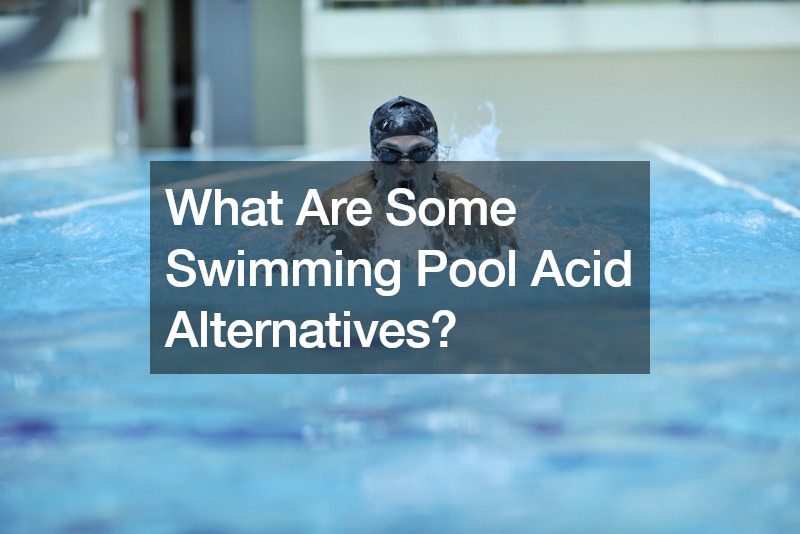What Are Some Swimming Pool Acid Alternatives?


When it comes to maintaining a swimming pool, keeping the water clean and balanced is essential for ensuring a safe and enjoyable swimming environment. Traditionally, muriatic acid has been used to lower the pH and alkalinity levels in pool water. However, due to its hazardous nature and potential safety risks, many pool owners and maintenance professionals are seeking safer and more environmentally friendly alternatives. Here are some of the most popular swimming pool acid alternatives:
Sodium Bisulfate: Also known as dry acid, sodium bisulfate is a granular substance that serves as a safer alternative to muriatic acid. It is easier to handle and store, poses less risk of spills and burns, and is effective in reducing pH and alkalinity levels in pool water.
Sodium bisulfate is also less likely to produce harmful fumes, making it a preferable choice for indoor pools or enclosed spaces.
Carbon Dioxide (CO2) Injection: Utilizing CO2 as a way to manage pH levels in pools is gaining popularity, especially in commercial settings. When CO2 is dissolved in water, it forms carbonic acid, which can help to lower the pH without the risks associated with handling strong acids. This method is particularly advantageous as it is fully automated, reducing manual handling and dosing errors.
pH Decreaser Products: There are various commercial products available that are specifically formulated to reduce pH levels in pools. These products often contain a blend of acids that are less concentrated than muriatic acid, making them safer to use. They are designed to be easy to apply, with pre-measured doses to prevent overuse.
Vinegar: For those seeking a natural alternative, vinegar can be used in small, residential pools. Vinegar is acetic acid, which can lower the pH of pool water. However, due to its mild acid strength, it may not be effective for larger pools or significant pH adjustments. It is most suitable for minor corrections in small volumes of water.
Citric Acid: Another natural option is citric acid, commonly found in citrus fruits. Like vinegar, citric acid is weaker than muriatic acid but can be used for small adjustments in residential pools. It is biodegradable and poses less risk to the environment.
When choosing an alternative to muriatic acid for pool maintenance, it’s important to consider the size of the pool, the extent of pH adjustment needed, and safety factors. Each alternative has its benefits and limitations, and what works for one pool may not be the best choice for another. Additionally, regular testing and monitoring of pool water chemistry are crucial to maintaining a safe and balanced swimming environment with swimming pool acid alternatives.
.







